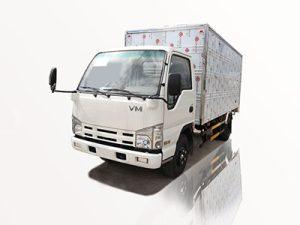Monday to Saturday - 8:00 -17:30
Garbage Truck Financing: A Comprehensive Guide to Funding Your Waste Management Fleet
The waste management industry is crucial for maintaining cleanliness and public health in communities. As demand for reliable garbage collection services grows, waste management companies must invest in efficient vehicles like garbage trucks. However, the cost of these vehicles can be significant, leading many companies to seek financing options. This article will explore garbage truck financing, including types of financing available, tips for securing loans, and frequently asked questions on the topic.
Understanding Garbage Truck Financing
Garbage truck financing refers to the various financial options available to businesses seeking to purchase or lease garbage trucks. These options can help reduce the financial burden of acquiring new vehicles, making it easier for companies to focus on their operations and growth.
Why Financing is Important for Garbage Truck Purchases
The high purchase price of garbage trucks can be a barrier for many waste management companies, particularly small to mid-sized businesses. Financing allows companies to spread the cost over time, preserving cash flow for other essential business expenses.
Types of Garbage Truck Financing
There are several financing options available for purchasing garbage trucks, each with its unique benefits and drawbacks. Understanding these options can help businesses make informed decisions.
1. Traditional Bank Loans
One of the most common financing methods is a traditional bank loan. These loans typically offer competitive interest rates and repayment terms ranging from 3 to 7 years. However, they usually require a strong credit history and collateral.
2. Equipment Financing
Equipment financing is a popular option specifically designed for purchasing machinery and vehicles. With this type of financing, the garbage truck itself serves as collateral. This can make it easier to obtain financing, even for companies with less-than-perfect credit.
3. Leasing Options
Instead of buying, waste management companies may choose to lease garbage trucks. Leasing generally requires lower upfront payments and offers flexibility. At the end of the lease term, companies can choose to purchase the truck or return it.
4. Government Grants and Loans
Some government programs offer grants and low-interest loans for waste management. These programs aim to promote eco-friendly practices and help communities improve their waste collection services. Researching available local, state, or federal funding can provide significant financial support.
5. Seller Financing
Some manufacturers and dealers may offer seller financing, allowing businesses to purchase the truck directly from them with flexible payment terms. This can be a viable option if financing through traditional lenders proves challenging.
Factors to Consider When Financing a Garbage Truck
Before committing to any financing option, several factors should be evaluated to ensure the chosen method aligns with the company’s needs and financial situation.
1. Budget and Total Cost of Ownership
It’s essential to calculate the total cost of ownership, including not just the purchase price but also maintenance, fuel, insurance, and potential resale value. A clear budget can help businesses identify financing that is manageable long-term.
2. Credit Score
Most lenders will evaluate a company’s credit score. A higher credit score typically allows for more favorable loan terms. Companies should check their credit and work on improving it if necessary before applying for financing.
3. Duration of Financing
The length of the financing term can affect monthly payments and overall interest costs. Shorter terms typically mean higher monthly payments but less paid in interest. Companies need to find a balance that aligns with their cash flow.
4. Interest Rates
Interest rates vary significantly by lender and current market conditions. It’s wise to shop around and compare rates to find the best deal. Furthermore, businesses should be mindful of fixed versus variable interest rates, as these will impact long-term payments.
5. Down Payment Requirements
Some financing options require a down payment, which can affect upfront costs. Companies should assess how much capital they can allocate to a down payment without compromising their operational funds.
Steps to Secure Garbage Truck Financing
The process of securing financing can seem daunting, but following these steps can streamline the experience.
1. Prepare Financial Statements
Before applying for financing, businesses should gather necessary financial documents, including profit and loss statements, tax returns, and balance sheets. Lenders will assess these documents to evaluate risk.
2. Research Financing Options
Research different types of financing and lenders to determine which suits your business the best. Compare interest rates, terms, and conditions to find the most favorable option.
3. Submit Applications
Once a financing option is chosen, businesses can complete and submit their applications. Ensure all documentation is accurate and complete to avoid delays.
4. Review Loan Terms
If approved, carefully review the loan terms and conditions before signing. Make sure you fully understand repayment requirements and any fees.
5. Make Payments on Time
After securing financing, make timely payments to maintain a good credit score and avoid penalties. This practice will also strengthen relationships with lenders for future financing needs.
Practical Examples of Garbage Truck Financing
Here are a few practical scenarios that illustrate how different financing options can work in real-world applications.
Example 1: Traditional Bank Loan
ABC Waste Management Company wants to purchase two garbage trucks for $200,000 each. They apply for a traditional bank loan to finance the total cost of $400,000:
| Loan Amount | Interest Rate | Loan Term | Monthly Payment |
|---|---|---|---|
| $400,000 | 5% | 5 years | $7,547 |
With a strong credit score and solid financial statements, ABC Waste Management secures this loan and successfully purchases the trucks.
Example 2: Equipment Financing
XYZ Disposal Services opts for equipment financing because they have moderate credit. They want to purchase a single garbage truck valued at $150,000:
| Loan Amount | Interest Rate | Loan Term | Monthly Payment |
|---|---|---|---|
| $150,000 | 7% | 4 years | $3,680 |
Since the truck serves as collateral, XYZ Disposal Services secures the financing and makes monthly payments while using the truck for their services.
Example 3: Leasing Option
123 Garbage Collection chooses to lease a truck instead of buying. The leased truck is valued at $100,000 with a lease term of 5 years:
| Lease Amount | Monthly Lease Payment | Residual Value |
|---|---|---|
| $100,000 | $2,000 | $30,000 |
At the end of the lease term, they can either purchase the truck for its residual value or return it for a new model.
Tips for Managing Garbage Truck Financing Effectively
1. Keep Accurate Financial Records
Maintaining detailed financial statements aids both in comparisons between financing options and in reporting to lenders. It is crucial for ongoing financial health.
2. Monitor Cash Flow
Regularly review cash flow to ensure the business can handle monthly payments. Identifying potential cash flow adjustments will help avoid payment issues.
3. Understand Maintenance Costs
Besides the financing costs, companies must budget for regular maintenance and unexpected repairs. Failure to do so can impact overall profitability.
4. Stay Informed About Market Trends
Being aware of market changes can help anticipate when to buy, lease, or sell equipment. Staying informed can protect your investment in garbage truck financing.
Frequently Asked Questions (FAQ)
1. What is the typical interest rate for garbage truck financing?
Interest rates can vary based on the lender, type of financing, and the borrower’s credit score. Rates typically range from 4% to 10%.
2. Can I finance used garbage trucks?
Yes, many lenders offer financing for used garbage trucks, often at a lower cost. Just ensure the truck has been well-maintained and meets safety regulations.
3. How long does it take to get approval for garbage truck financing?
Approval times vary by lender, but it can take anywhere from a few days to several weeks, depending on the thoroughness of your application and documentation.
4. What paperwork is needed for financing a garbage truck?
You will typically need to provide financial statements, tax returns, proof of business ownership, and possibly personal credit information from business owners.
5. Is leasing a better option than buying for garbage trucks?
This depends on your company’s financial situation, usage needs, and preferences. Leasing generally provides lower upfront costs, while purchasing can build equity in the long run.
6. Are there any special programs for financing eco-friendly garbage trucks?
Yes, certain government and nonprofit programs offer financing options and grants for environmentally friendly vehicles, which can significantly lower costs for eligible businesses.









